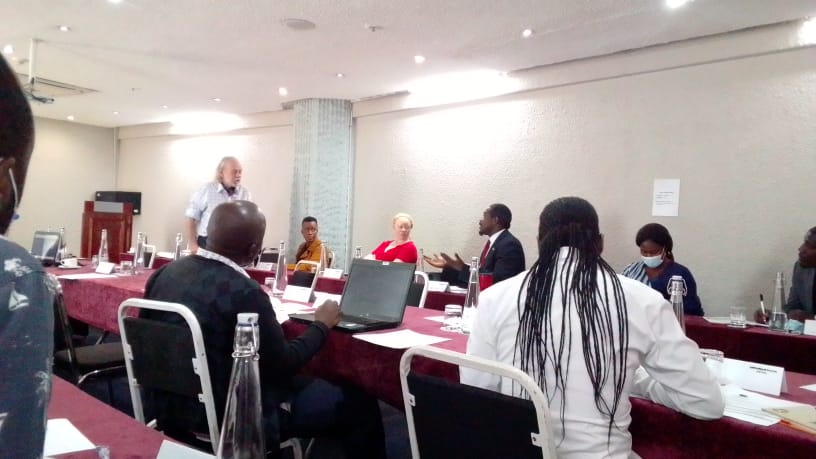|
Getting your Trinity Audio player ready…
|
By Joyce Mukucha
The Zimbabwe Union of Journalists (ZUJ) is conducting a two-day crisis reporting workshop for journalists to equip them with necessary media skills that enable them to provide local communities, especially those traumatized by disasters with accurate, balanced, and reliable information.
The Crisis Reporting Workshop underway in Harare is running under the theme, “Strengthening the role of the media in support of accountable governance and community development in Zimbabwe-ZimMedia21” seeks to capacitate members of the fourth estate on how best they can go beyond conventional newsgathering and investigate why and how emergencies arise, how they can be mitigated and holding those responsible to account.
In his welcome remarks at the workshop in Harare on the 9th of September 2021, ZUJ president, Michael Chideme said ZUJ always thrives to strengthen the work of journalists by ensuring that they receive the support and capacity they need to fully execute their duties in a way that benefits the community and the nation at large.
“As ZUJ, we always strive to equip you with journalistic skills. The aim of the workshop is to equip you on how to report crisis news including the ongoing global Covid-19 pandemic, cyclones, child marriages, veld fires, corruption, climate change among others.
“lt is imperative to expand these skills to you so that you become aware of the developing trends and know the right terminology when disseminating information about these issues. In as much as crisis reporting is concerned, skills from this training will also empower and assist you on the best way to expose the perpetrators of crimes for instance those who abuse children and those who force them to get into early marriages,” he said.
The workshop covers a range of topics including basic reporting skills, the human face of the crisis, verification, and attribution of sources, tracking how effective the relief and recovery efforts are being coordinated to affected communities among other relevant topics aimed at enhancing journalists to feed the audience with the right information about crises and post-disaster issues.
The veteran journalist who was the training leader at the workshop, Andrew Moyse told members of the media that they must be able to recognise crises and know how to tackle them when giving coverage.
“When it comes to crisis reporting, as trained communicators, you have a critical role to play. It is important to make that you have facts about the crisis, you have the responsibility to be accountable to public scrutiny. The public depends on you to give information which is reliable, objective, fair, and accurate. Objectivity is derived from how the story affects people’s rights therefore when gathering information on crises, you need to know the who, what, where, when, and how to investigate the why and the what extent,” he said.
Moyse stressed that when reporting on crises, journalists have the obligation to provide vital up-to-date information for victims, relief workers, and the public.
Rather than crafting catchy headlines and narratives on disasters, Moyse emphasised the need for journalists to identify and hold to account the agencies whose incompetence or neglect led to a crisis or prolonged it.
“It is the role of the media to push for action to be taken when a disaster occurs. It is your duty to follow and figure out if a response is being mobilized for the victims and it is your duty as information bearers to know which emergency services and humanitarian agencies are responding.”
Gaps, he said were still existing in as much as crisis reporting by Zimbabwean journalists is concerned. He pointed out the need for the media to tell the facts of the situation and what is going to be done about it.
“It is important to investigate how and why the disaster happened. That way the public knows who or what was responsible and what should be done to avoid such disaster in the future.”
Journalists from different media houses who participated during the workshop highlighted that in as much as they want to conduct thorough investigations on crises and causes of disasters, officials were holding the critical information which affects the work of a journalist and they end up using the only available information which then appears as bias and inaccurate.
ZUJ Programs Manager, Eric Matingo said journalists are at the forefront of public opinion, therefore, they need to be well informed urging them to meaningfully play their role especially when it comes to crisis reporting.
He further highlighted that people still trust the mainstream media to get correct information thus the need to continue equipping and empowering journalists with requisite skills to approach and handle issues in a well-disciplined manner.
